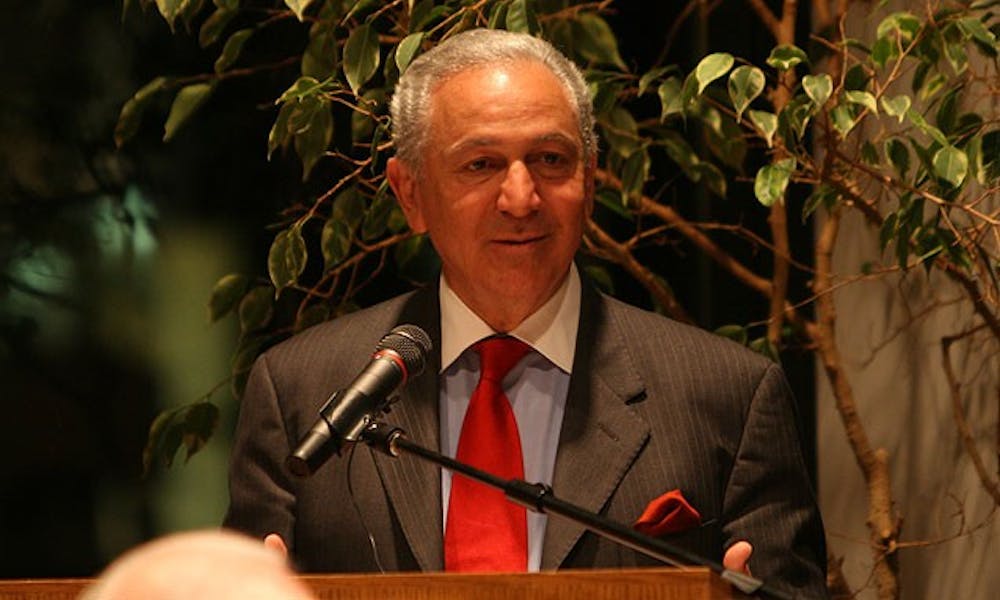Dozens of professors, high-ranking government officials and other experts have gathered this week at the Fuqua School of Business to debate U.S national security policy.
The conference, sponsored by the School of Law and titled “National Security Challenges and the Obama Administration,” includes two days of panels on topics such as cyberterrorism response and environmental effects on security.
Yesterday’s event drew some of America’s top legal minds, including Robert Litt, the general counsel for the Director of National Intelligence and Jeh Johnson, the Defense Department’s general counsel.
Johnson, expressed support for President Barack Obama’s policies on national security. He said decisions like closing the detention center at Guantanamo Bay are given deadlines by federal judges in most cases. The role of the courts is crucial in establishing national security policy and speeding up the decision-making process, even if this means that policies cannot always remain uniform.
“Consistency for the sake of consistency has its risk,” he said. “I am confident that the policies of the Obama administration will stand in the courts,”
Major themes being addressed during the conference include how the current administration is changing U.S policy, and whether the nation is moving in the right direction.
The federal government’s role in assuring national security was a controversial topic. Paul Rosenzweig, a panelist from Red Branch Law & Consulting, said cyberterrorism is one area that should not be left in the hands of federal government.
Get The Chronicle straight to your inbox
Sign up for our weekly newsletter. Cancel at any time.
“The federal government works slowly and is not equipped to deal with this problem,” he said.
Some felt that the federal government needs more power to regulate the Internet to prevent cyberterrorism, but it needs to avoid bureaucratic entanglement.
In Wednesday afternoon’s panel, private sector and academic experts criticized the Obama administration’s move toward more stringent regulations on military commissions and detention for terrorists. Several panelists expressed support for the steps to close the detention facility at Guantanamo Bay and to create a new interrogation doctrine, saying it would improve perceptions of the United States worldwide. Others, however, were worried about the effects of the new rules on the United States’ ability to get information from detainees.
Keynote speaker Aziz Mekouar, the Moroccan ambassador to the United States, said an increase in international cooperation is key to combatting terrorism. He said the United States can do little to prevent the radicalization of foreign youth, other than support governments affected by terrorism.
“We need a fuller cooperation between nations in the region—unfortunately it’s not working,” he said. “The United States can do very little but to support governments themselves.”
Mekouar said Morocco was working toward solutions such as regulation on religious speech created by a National Council and increased international cooperation for regional national security.
Today’s panels will discuss human rights and the impact of environmental concerns on national security.

